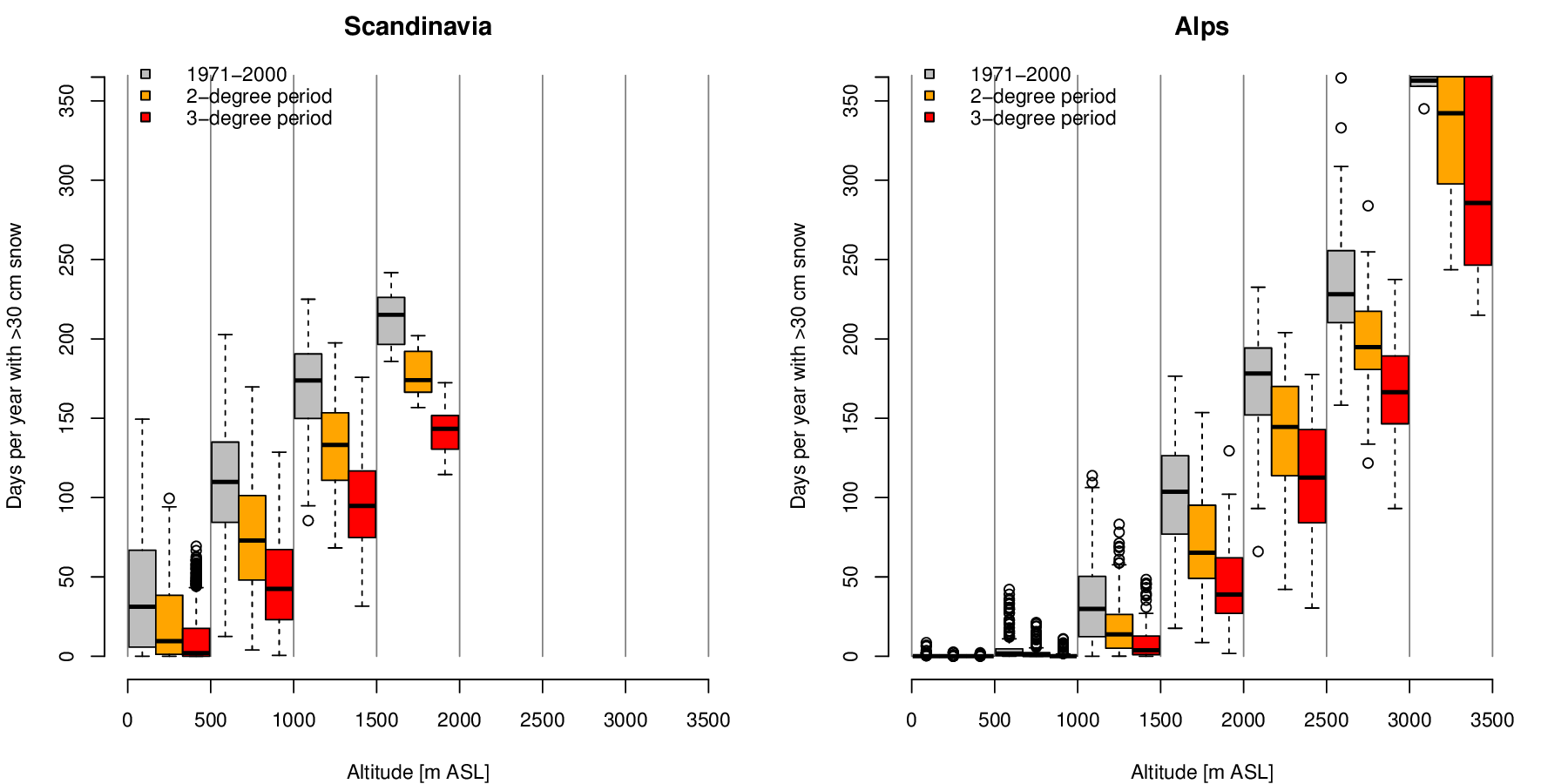Snow Season Length
Why is the content of this map important?
A warmer climate means fewer days with snow. Here we show the number of days with more than 30 cm snow as an indicator of the change in snow season length.
Which sectors are affected by this result?
Winter tourism resorts are dependent on having enough snow to maintain the slopes for sports. In many areas the snow season is already short, which means the related economies depend on the snow conditions to keep resorts open.
What is shown on the maps?
The "1971-2000" and "2°C period" tabs show the number of days per year with more than 30 cm snow (120 mm water equivalent). The "climate change signal" tabs shows how shorter, as a percentage, the snow season will be when we reach the 2°C period. For example, a value of -40 means that the future period will have 40% less days with more than 30 cm snow. As can be seen, most areas will lose a considerable part of the season.
Details and further information:
The change in snow season looks different for different altitudes. Lowland areas will see a larger share of their snow days disappear, but even the highest alpine areas will see change.
Number of days with >30 cm snow per year, shown at different altitudes in 500-meter intervals. The gray boxes show the reference period (1971-2000) while the orange and red boxes show the 2- and 3-degree periods, respectively.The data was produced using a hydrological model driven by regional and global climate models. The model ensemble consists of 11 different simulations for the 1971-2000 and 2°C periods and five simulations for the 3°C period.
Author:
Oskar Landgren
Meteorologisk Institutt (MET.NO), Norway